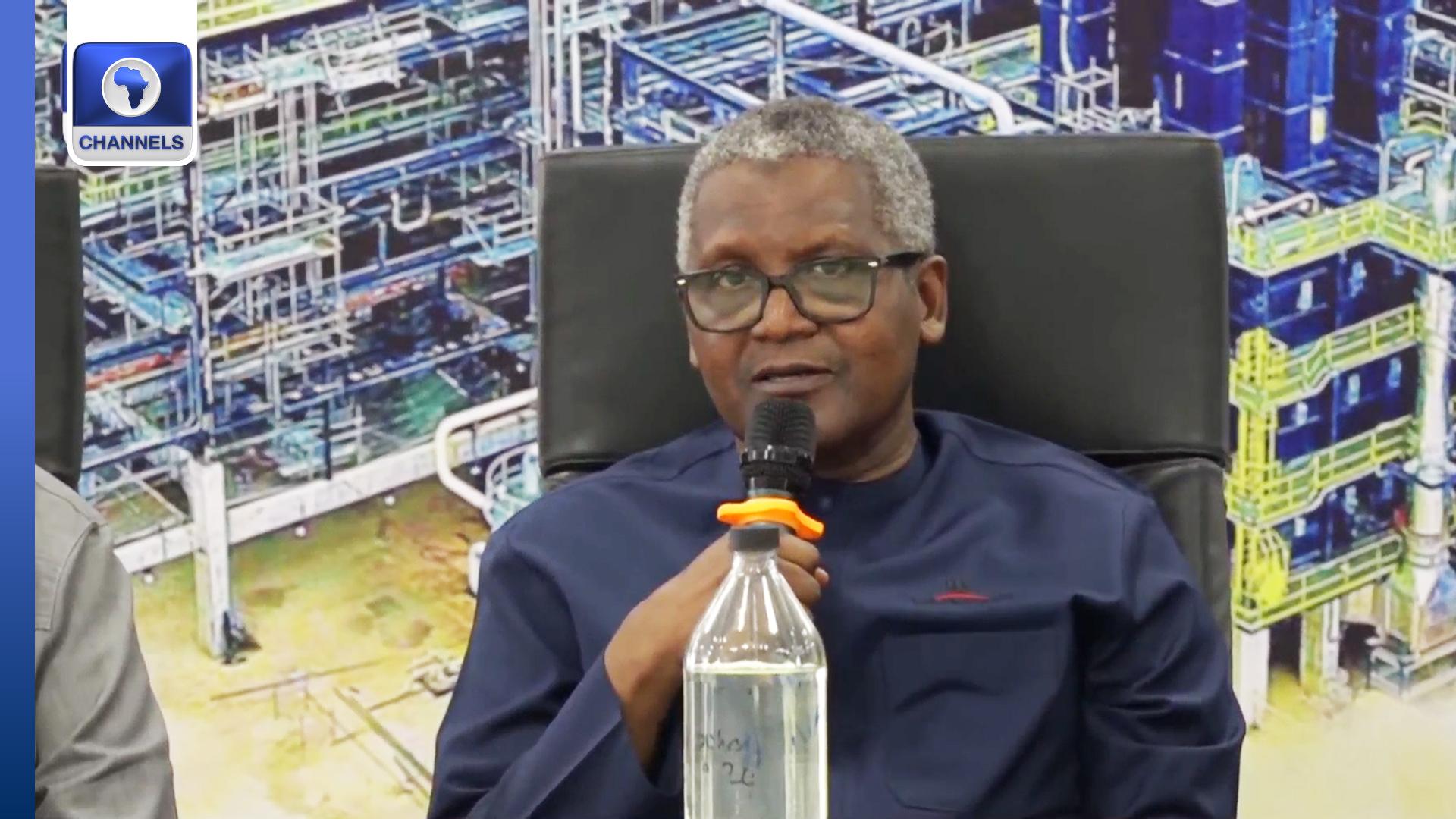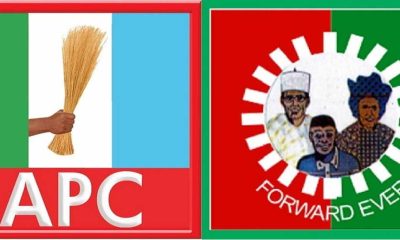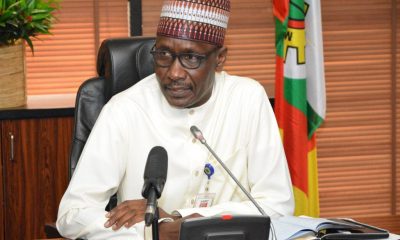Business
Sentiments as NNPCL appoints expatriate, moves to plug out inefficiency

Concern about low productivity may have informed the decision of the Nigerian National Petroleum Company Limited to hand over its commercially viable departments to expatriates.
But this may not seat well with some pro-establishment people who appear ready to frustrate it.
This is coming after its official transitioning into a private entity.
The NNPCL has made the first move with the announcement of Jean-Marc Cordier as the head of the oil trading section of the company.
It announced this in a statement, saying his appointment was in furtherance of the ongoing repositioning in the company for improved growth, better performance and service delivery.
The statement read in part, “A renowned international oil trader, Cordier, a French/Swiss national, holds a Masters degree in Corporate Finance with distinction from Paris 9 University.
“He comes into the role with a rich background spanning over 30 years in physical oil, oil derivatives, and risk management, with significant experience in reorganising and creating a trading business.”
On July 19, last year, President Muhammadu Buhari unveiled the new NNPC, which enabled it to transition into a commercial entity, becoming NNPCL.
The transitioning means that the oil company would be regulated in line with the Companies and Allied Matters Act provisions.
The former state-owned company has been known for its relatively poor leadership and lack of profits for about 45 years.
Experts expect the firm to be independent of government and operate without state funding, with the new goal of delivering value to its shareholders.
The NNPC’s shares and assets, including oil blocs and refineries, are now held by the ministries of petroleum and finance.
But there are doubts how the firm could really function well as a truly private corporation with the government’s appointees still calling the shots at the industry and allowed to superintend over the so-called reorganisation.
The NNPC ought to be reliable cash cow, but over the years, analysts note that it has remained a perennially inefficient and loss-making state-owned oil corporation.
Experts say they wait to see how the transition from NNPC to NNPCL will help it become a profitable business that will benefit Africa’s largest oil producer.
Some people are beginning to cry foul over the appointment of Cordier as this is intended to usher in a new regime, according to a Punch report.
This is mostly coming from those who felt their jobs are on the line and they are looking into the statute book on conditions guiding the appointment of expatriates.
The Punch report read in part, “The announcement, however, triggered resentments among analysts and operators on Monday, though other experts found nothing wrong with the development.
“Energy expert and Chief Executive Officer, Sage Consulting, Bode Fadipe, said, ‘It is of concern to most Nigerians that at this time of our life we are still having a foreigner in such a strategic business enterprise in this country.
‘The question many people will ask is that: Don’t we have Nigerians who can manage that office? Are the expatriates now investors in the business or is it a joint venture that allows a foreigner to hold that kind of position?
‘Has NNPC Ltd sold its shares to the public? To the best of my knowledge, it is still the Nigerian government that owns the shares in NNPCL. It is still owned by the government, so when did it start appointing foreigners to such a level?”
“Fadipe said this was the first time he would see such an appointment in the national oil company, describing the development as abnormal. ‘I think it is an anomaly. I don’t know what would have informed that kind of position, but I think it is a situation that calls for further interrogation,’ the energy analyst stated.
“But on his part, a legal consultant and energy law advisor, Prof. Yemi Oke, argued that under the Petroleum Industry Act 2021, NNPCL should be a going concern, as there were requirements under the law for appointments. ‘There are other Nigerian companies that have expatriates as employees, all they need is to comply with the expatriate quota and show that there’s no local manpower skilled enough to man that particular office, due to the technical nature of the position,’ he stated.”
Business
I’m honoured, excited over World Bank’s appointment – Dangote

I’m honoured, excited over World Bank’s appointment – Dangote
President and CEO of Dangote Group, Aliko Dangote, has expressed gratitude following his appointment to the World Bank’s Private Sector Investment Lab, a global initiative aimed at accelerating private investment and job creation in emerging economies.
In a statement confirming the development, Dangote described the appointment as both an honour and a reflection of his long-standing commitment to economic development through private enterprise.
“I am both honoured and excited to accept my appointment to the World Bank’s Private Sector Investment Lab, dedicated to advancing investment and employment in emerging economies,” Dangote said.
“This opportunity aligns with my long-standing commitment to sustainable development and unlocking the potential of developing economies.”
He referenced the successes of the so-called Asian Tigers, economies that experienced rapid growth through strategic investment, as a source of inspiration for advancing similar outcomes in other parts of the world.
The World Bank announced Dangote’s inclusion on Wednesday as part of a broader expansion of the Lab, which enters a new phase focused on scaling up solutions that attract private capital and generate employment in developing countries.
Other newly appointed members include Bill Anderson, CEO of Bayer AG; Sunil Bharti Mittal, Chairman of Bharti Enterprises; and Mark Hoplamazian, President and CEO of Hyatt Hotels Corporation.
READ ALSO:
- Akpabio to represent Tinubu at Pope Francis funeral
- PDP will come out stronger, Saraki reacts to Okowa, Delta gov defection
- Countries eligible to enter US without visas for 90days (full list)
World Bank Group President Ajay Banga noted that the expanded membership underscores the institution’s focus on integrating private-sector leadership into its strategy for global job creation.
“With the expanded membership, we are mainstreaming this work across our operations and tying it directly to the jobs agenda that is driving our strategy,” Banga said.
“This isn’t about altruism—it’s about helping the private sector see a path to investments that will deliver returns, and lift people and economies alike. It’s central to our mandate.”
The lab, which was co-chaired in 2023 by Canadian Prime Minister Mark Carney, previously sought to mobilise £1 trillion in sustainable investment, particularly targeting energy transition projects in emerging markets.
Aviation
Air Peace suspends flights nationwide over NiMet strike

Air Peace suspends flights nationwide over NiMet strike
Air Peace has suspended all its flight operations across the country due to the ongoing strike by the Nigerian Meteorological Agency (NiMet).
The airline said in a statement on Wednesday that it was also suspending operations due to the unavailability of QNH (hazardous weather) reports required for safe landings.
“Due to the ongoing NiMet strike and the unavailability of QNH (hazardous weather) reports required for safe landings, Air Peace has suspended all flight operations nationwide until the strike is over,” Air Peace said.
“Your safety is our top priority. We appreciate your understanding and will share updates as the situation unfolds.”
The airline had earlier announced that the NiMet strike could lead to flight delays and cancellations across its network.
Air Peace added that it was monitoring the situation and working with relevant stakeholders to minimise the impact on customers’ travel plans.
Employees of NiMet commenced a nationwide indefinite strike over welfare issues on Wednesday.
Some of the issues raised involve “NiMet’s refusal to negotiate or implement agreed financial allowances and unresolved entitlements,” including wage awards, peculiar allowances, and outstanding payments from the 2019 minimum wage.
They also accused the management of the agency of withholding important documents, ignoring requests for inclusion of omitted staff in past payments, and neglecting key training programmes in favour of executive retreats.
Business
Nigeria’s gas production increases by 15.6% to 227,931.65 mscf

Nigeria’s gas production increases by 15.6% to 227,931.65 mscf
Nigeria’s gas output has increased 15,6 percent month-on-month, MoM, to 227,931.65 million standard cubic feet, mscf, in March 2025.
But on year-on-year, YoY basis, the nation’s gas output recorded a marginal increase to 227,931.65 mscf in March 2025, from 198,353.62 mscf, recorded in the corresponding period of 2024.
Data obtained from the Nigerian Upstream Petroleum Regulatory Commission, NUPRC, Gas Production Status reports indicated that of the total of 227,931.65 mscf produced in March 2025, 119,552.75 mscf was associated while 108,378.90 mscf was non-associated gas.
Associated gas is extracted in the process of producing crude oil while non-associated gas is produced without crude oil after much investment, exploration and development.
The Ministry of Petroleum Resources (Gas), which is directly involved in the development of policies, targeted at increasing investment in the sector said efforts have been made to increase investment and production of gas in Nigeria.
Similarly, in its recent report obtained by Vanguard, the Nigerian LNG Limited stated: “We are fully committed to expanding our operations with the NLNG Train 7 Project, which will boost our production capacity by 35%, increasing from 22 Million Tonnes Per Annum (mtpa) to 30 mtpa. This project underscores our role as a key player in the global LNG market and positions Nigeria as a top-tier supplier of LNG, leveraging its vast proven gas reserves of 202 trillion cubic feet (the 9th largest globally).
Vanguard
-

 metro1 day ago
metro1 day agoOmokri : How Tinubu’s political mastery started with Abiola, says El-Rufai, Obi’s forces can’t stop him
-

 Education1 day ago
Education1 day agoJAMB officials seize candidates’ hijab at Caleb varsity, Muslim students kick
-

 Entertainment2 days ago
Entertainment2 days agoP-Square: Jude Okoye freed after two months detention
-

 International1 day ago
International1 day agoUS releases 41 countries granted 90-day entry without visas (full list)
-

 Politics2 days ago
Politics2 days agoLabour Party collapses into APC in Plateau
-

 metro1 day ago
metro1 day agoGroom cancels wedding, marries another lady same date, venue
-

 metro12 hours ago
metro12 hours agoEFCC declares four persons wanted over CBEX scam
-

 metro2 days ago
metro2 days agoNiger Gov Bago makes U-turn on dreadlocks ban after backlash









